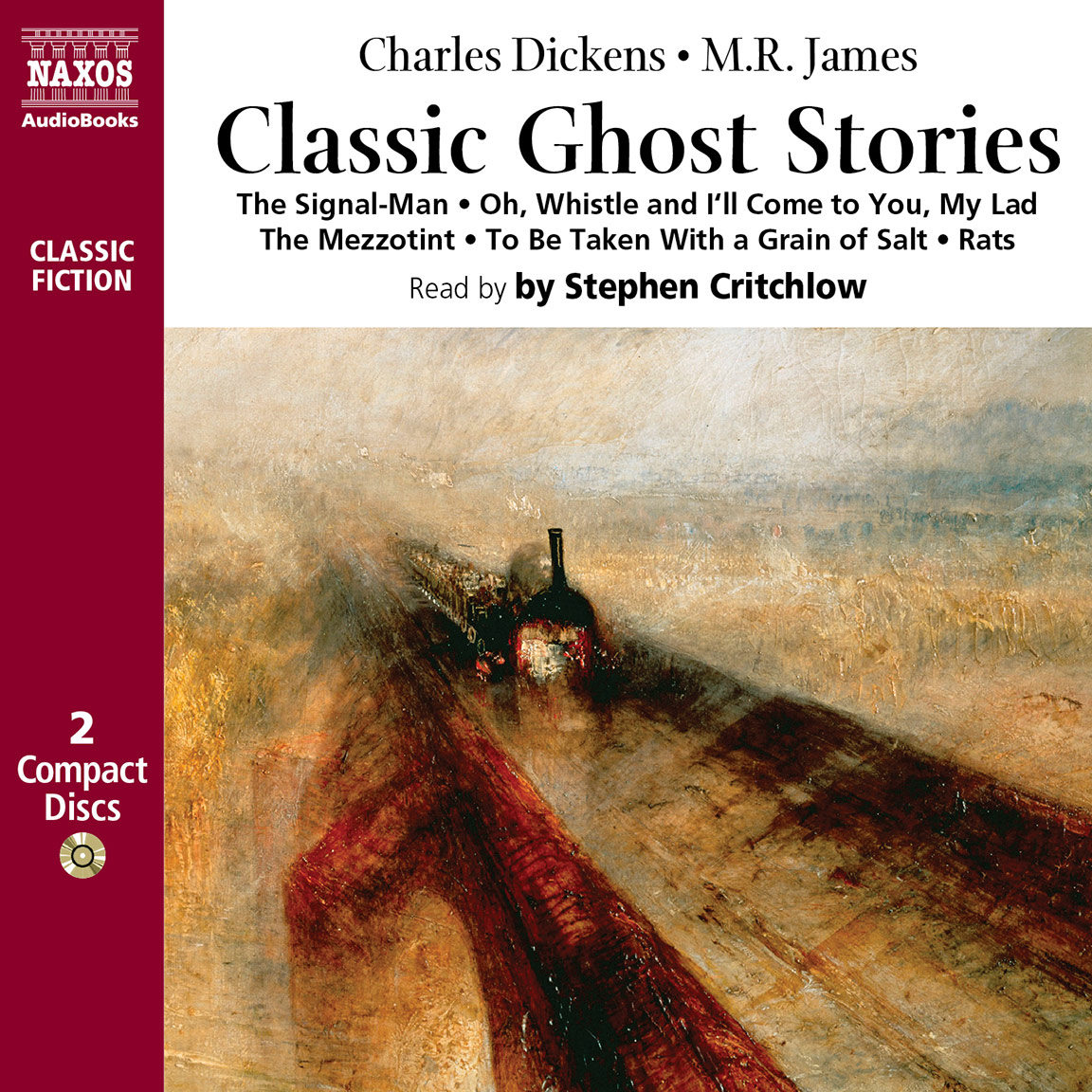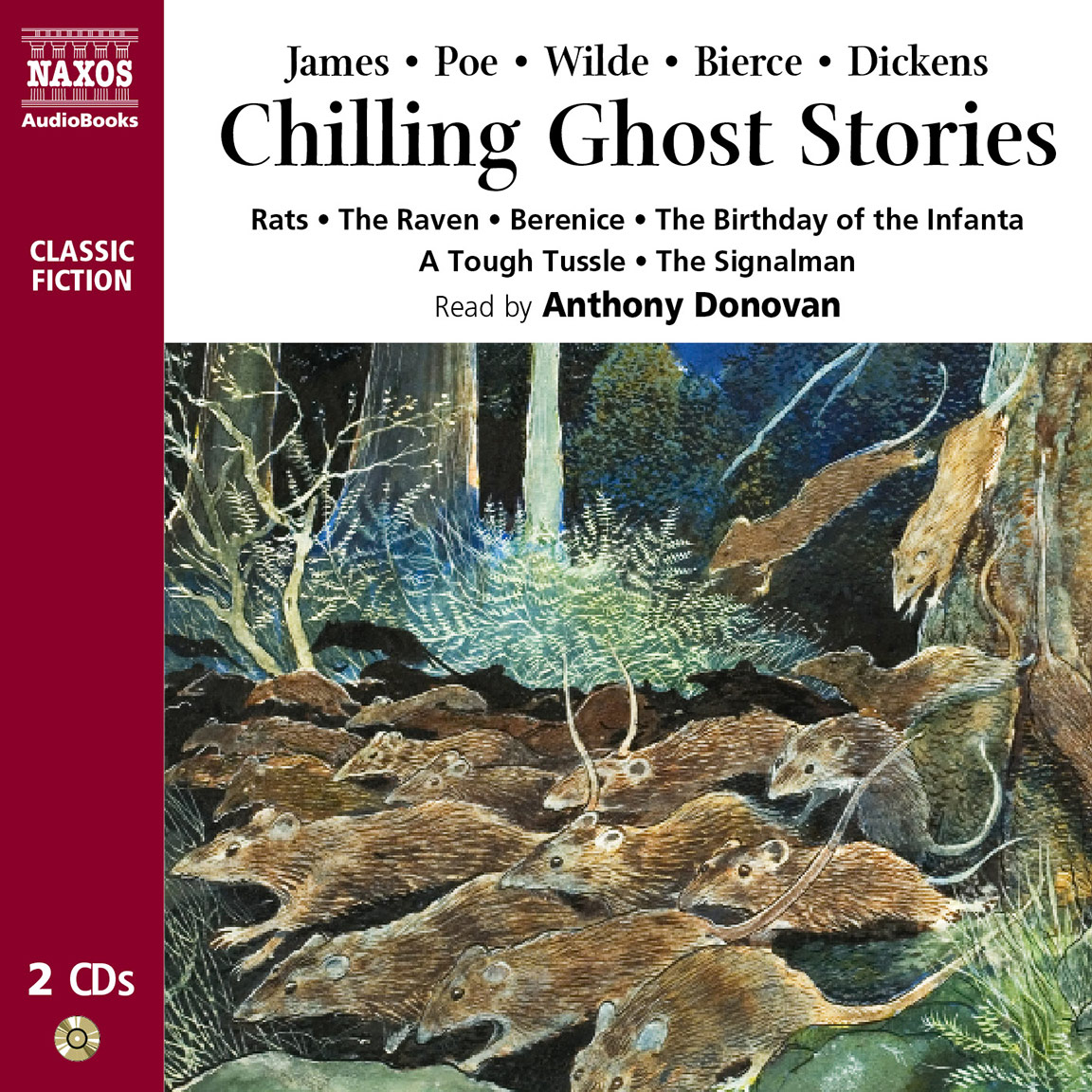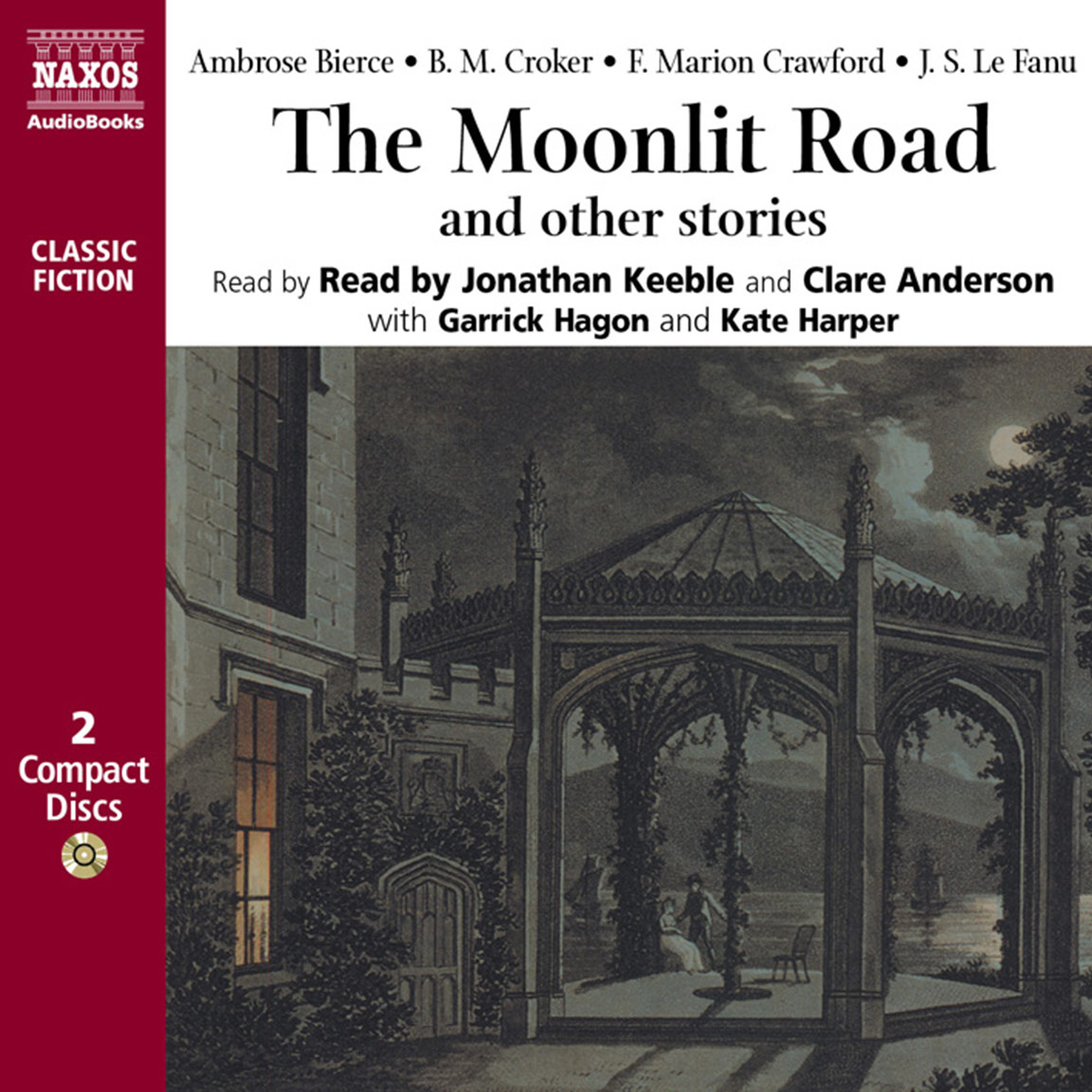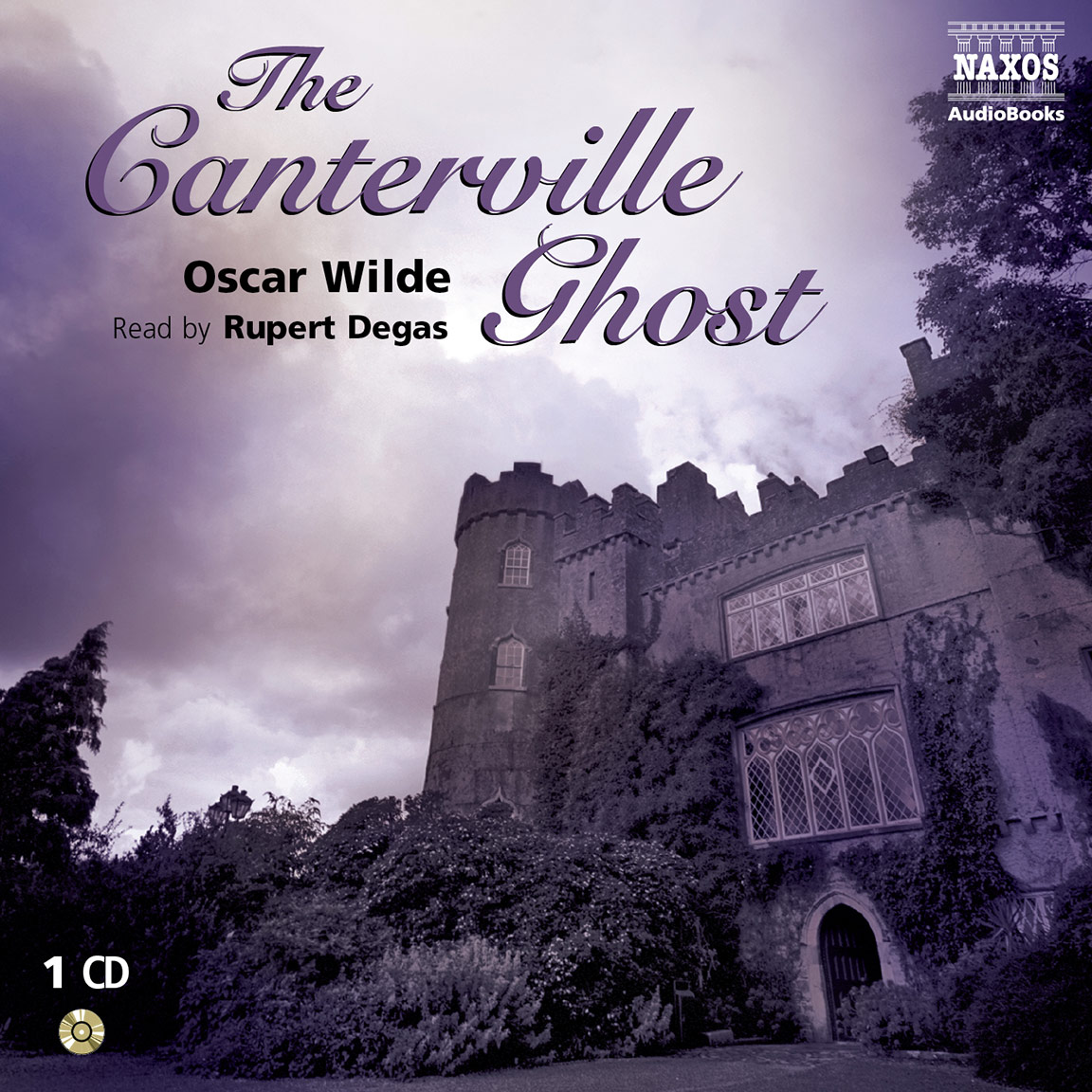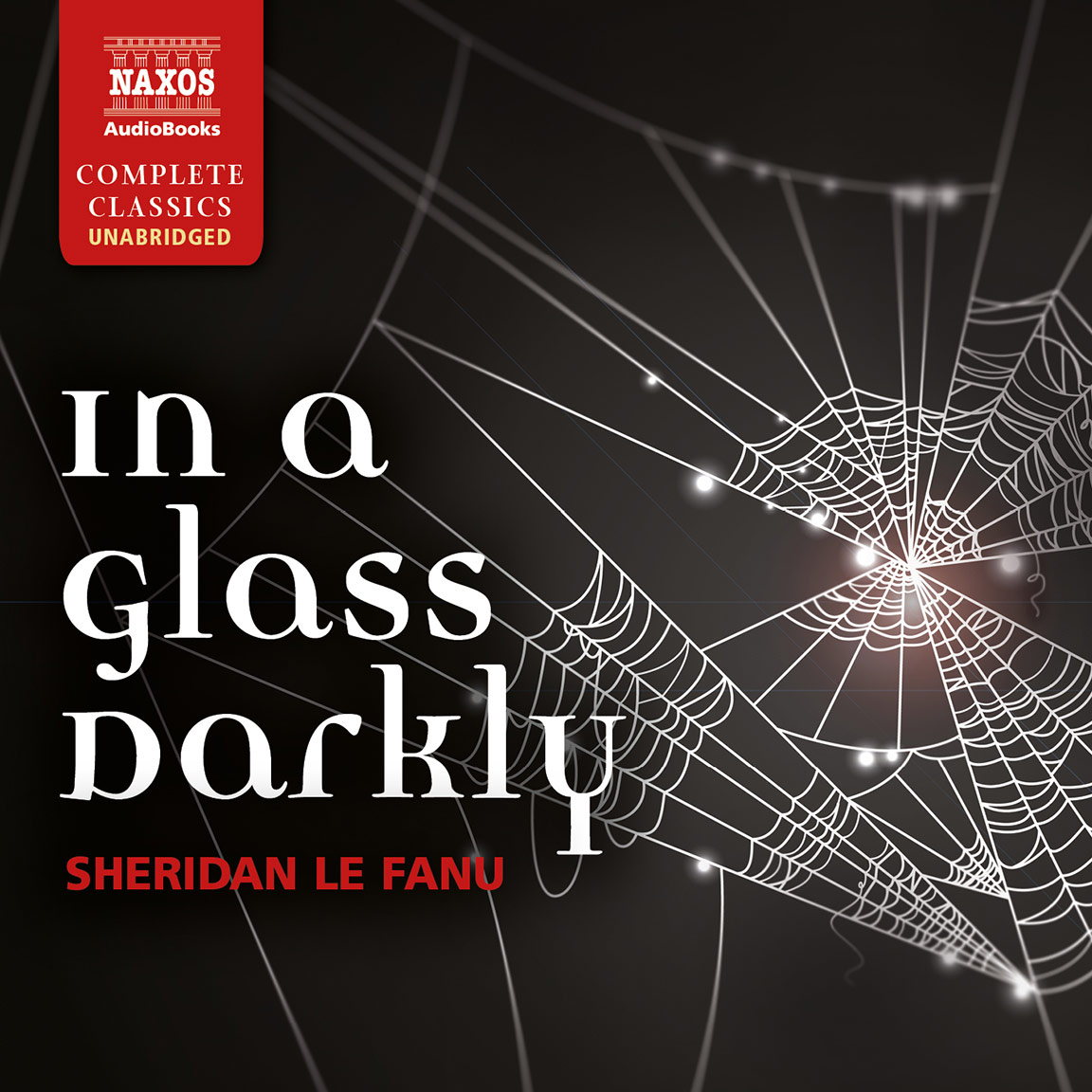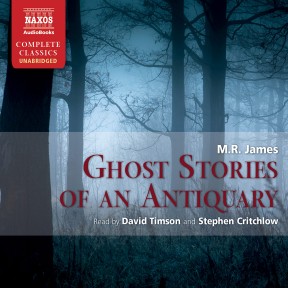
Audio Sample
M.R. James
Ghost Stories of an Antiquary
Read by David Timson & Stephen Critchlow
unabridged
The powerful sense of evil – darkness, creepy hairy presences, cloaks, hoods, talons and tentacles – pervades these classic ghost stories by M.R. James. A Cambridge scholar himself, James explored what happens when academics dabble in things they don’t understand and unleash forces of which they know nothing. The titles in Ghost Stories of an Antiquary range from witchcraft to the occult, and tap into our primal fear of things that go bump in the night. They are recognised as the best of their genre.
-
Running Time: 4 h 43 m
More product details
Digital ISBN: 978-1-84379-428-8 Cat. no.: NA0015 Download size: 69 MB BISAC: FIC012000 Released: October 2010 -
Listen to this title at Audible.com↗Buy on CD at Downpour.com↗Listen to this title at the Naxos Spoken Word Library↗
Due to copyright, this title is not currently available in your region.
You May Also Enjoy
Reviews
M.R. James’s ghost stories were written, in the first place, to be heard, preferably in a cosy, dimly-lit room, with a reassuring glass of whisky or brandy close at hand. The ideal situation, of listening to Mr Provost himself, is, of course, impossible today, but we are remarkably fortunate, thanks to Robert Lloyd Parry, in having the chance to experience some of the stories in circumstances not wholly dissimilar to those of Dr James’s first audiences. The next best thing, I suppose, is a recording, to be enjoyed in the comfort of our own homes, and it’s a little startling to realise how recently recorded readings became available. To be sure, there was the occasional radio broadcast (and wouldn’t we just love to hear Valentine Dyall telling the tale of A Neighbour’s Landmark?) but they were rare enough. Then, about thirty years ago, almost as if to atone for his part in Jonathan Miller’s perverse film Whistle and I’ll Come to You, Michael Hordern began his superb series of readings for Argo, nineteen stories in all – or, rather, eighteen plus Stories I Have Tried to Write. More recently, David Collings made a similarly excellent recording for Craftsman Audio Books: The Complete Ghost Stories of MR James, which includes all the tales from the four volumes, plus The Experiment, The Malice of Inanimate Objects, A Vignette and The Fenstanton Witch, but, oddly, excludes Stories I Have Tried to Write. Sir Michael’s and Mr Collings’ are, together, the touchstone, the standard by which one can judge other such readings. I had been wondering if, in time, the admirable team at Naxos AudioBooks would tackle Dr James’s disturbing tales… and now, with great pleasure, I welcome this recording of his first collection, Ghost Stories of an Antiquary. Both David Timson and Stephen Critchlow are superb vocal actors, with very pleasing voices, the voices of men you could sit and chat with over a pint of beer or a glass of port. Not the sort of voice that you’d immediately associate with the reading of ghost stories: they don’t have the silken menace of Vincent Price or the doom-laden resonance of Christopher Lee. But when you think about it, most of the best ghost stories call for a less – what shall we say? – a less theatrical approach from the narrator. David Timson in particular is an actor I’ve long admired. His recording of the Sherlock Holmes saga is a feat to rank with Radio 4’s complete dramatisation, and he accomplished it with dedication, erudition, panache and wit – the same qualities that both men bring to MRJ’s ghost stories. Mr Timson’s brief essay which accompanies these recordings is informative, intelligent and perceptive. I hadn’t considered the possibility that the ’crime’ of Canon Alberic ’is the destruction of a priceless old book, to provide material for his scrapbook – a sin MR James, as an antiquarian, could not forgive’, but it’s a rather appealing notion. As always with Naxos, the narratives are subtly enhanced by well-chosen music, all unfamiliar to me, by Chausson, Vieuxtemps and Eugène Ysaye. Overall, this recording is superb. There are just two small points that I ought to mention. Stephen Critchlow’s two readings, The Mezzotint and Oh, Whistle, and I’ll Come to You, My Lad, are taken from a 2 CD set released in 2007, Classic Ghost Stories (highly recommended, by the way), in which Mr Critchlow also reads Rats and two tales by Charles Dickens. That’s not a matter for complaint, but I can’t help thinking it would have been nice to have the same voice reading all eight of the Ghost Stories of an Antiquary. The only fault here is a small one, but odd. In Canon Alberic’s Scrapbook, David Timson consistently pronounces the name ’Comminges’ as ’Commeen’ – as if it had been printed in his script without the letter G, making it ’Commines’. A curious little error, but so very little that it can’t spoil the immense pleasure I get from listening to Ghost Stories of an Antiquary.
Roger Johnson, The Ghosts and Scholars/M R James Newsletter
Booklet Notes
When M.R. James was asked if he believed in ghosts, he said: ‘I am prepared to consider evidence and accept it if it satisfies me.’ This careful, scholarly answer tells us a great deal about the creator of some of the greatest ghost stories in the English language. James was very like a character common in his ghost stories, an academic combining a mixture of innocence with obsessive scholarship.
Montague Rhodes James was born in 1862, the son of a rector, and he spent virtually his whole life in the groves of academe: from Eton School he went to King’s College, Cambridge, where he obtained a double first in classics, and took root there, being appointed Junior Dean before rising to the post of Vice Chancellor in 1913. His study was the Apocrypha and medieval manuscripts. In 1918 he returned to Eton as Provost, and in 1930 he received the Order of Merit. He died peacefully in 1936.
His quiet, contented and uneventful life outside his studies consisted of bicycle rides, church music and games of patience, seemingly the only frisson being provided by the telling of ghost stories at Christmas to a group of friends after dinner in a room lit by a single candle.
James’s literary ambitions began and ended with ghost stories: ‘I have never cared to try another kind,’ he admitted, but in specialising he made the genre his own. He took the 18th century fictional convention of horror stories, known as ‘Gothic’, from their settings of dark ruined Castles or damp claustrophobic dungeons where danger or the unknown lurked, and showed that the past can have a more disturbing hold over the present than that conjured by those stereotypes. James wrote: ‘In the infancy of the art [of writing ghost stories] we needed the haunted castle on a beetling rock to put us in the right frame [of mind],’ but, he expounded, a ghost is much more effective in a setting that is ‘contemporary and even ordinary.’ His ghosts are more of a presence than the Gothic ghosts, who were often pale and only partially visible spirits. James’s ghosts are tangible and often touched before they are seen. He was convinced his apparitions should always be terrifying and never benign, and to achieve this he was not averse to using some of the old familiar trappings of the Gothic genre. Cloaks, hoods, talons, tentacles, incredibly hairy faces, the foul smell of evil – all pervade his stories, creating, as the story proceeds, a cumulative horror that makes them the best of the genre.
His tales are
covered with an
intellectual
veneer, but the
heart of the
story is
usually primal
In some stories, a seemingly harmless object acts as a catalyst to the story; in The Mezzotint, an indifferent print of a manor house seems to have a life of its own. Every time anyone looks at it, something has subtly changed – is it imagination or the supernatural? In Oh, Whistle, and I’ll Come to you, My Lad, the object is an ancient bronze whistle that terrifies Professor Parkins to near insanity. This is considered by many to be James’s masterpiece. The story is set in his native Suffolk, and the Professor is quite possibly something of a self-portrait.
There is a recognisable formula to James’s stories exemplified in Oh, Whistle, and I’ll Come to You, My Lad. They have as a background the quaint archaic world of academe or the church, seemingly safe and secluded from the outside world. A meddling academic in the process of seeking an ancient artefact disturbs a restless supernatural creature from the past seeking to avenge an ancient crime or to exert a satanic influence on the present.
His tales are covered with an intellectual veneer, specialised knowledge and quotations from Latin figure prominently, but the heart of the story is usually primal; a force from the distant past, its origins lost in folklore. Mr Abney’s exploration of Pagan rites and the Orphic and Bacchic mysteries is the gruesome theme of Lost Hearts, whilst The Ash Tree has pagan references throughout, dealing with witchcraft in Bury St. Edmunds, an area of Suffolk notorious in the seventeenth century for its witch trials.
His narrators are academic, but acquired knowledge proves to be no protection against the inexplicable or the unknown. James can even at times display a dry sense of humour, as in Canon Alberic’s Scrapbook, where the ‘crime’ of the Canon is the destruction of a priceless old book, to provide material for his scrapbook – a sin M.R. James, as an antiquarian, could not forgive. He believed that the past never leaves us, and should be treated with the utmost respect.
James writes with a studied simplicity. His stories are deliberately low-key in tone, sometimes prosaic, their relaxed scholarly style a distraction from the underlying dark mood of sombre expectation. The plots unfold at a casual pace, filled out with tangential references of an academic nature deceiving the reader into a sense of false security, until he pounces, revealing the story’s awful secret: a ghost, or spectre, or creature of the night. James doesn’t expand on his creatures, they appear and disappear with scarcely a word of explanation, but they linger menacingly in the reader’s imagination long after the story ends. In fact, James lets our imaginations do the work. He merely suggests, gives a glimpse of the horror. It is we who create them fully in our minds.
We are often left at the end of these stories with the feeling that it’s not over, as in The Treasure of Abbot Thomas, where the greed for treasure drives Mr Somerton literally into the arms (or tentacles) of a supernatural creature. Although he seals up the treasure again in its hiding-place, the reader is left asking, will he be safe? Or has he released some force that can’t be contained, as in Count Magnus where Mr Wraxall is literally hunted and haunted to death.
The strength of these stories lies in the fact that James, rather than using unconvincing pedantry in the form of invented or archaic terminology, which he believed always failed to convince a reader, uses instead references based on genuine scholarship. It’s what one would expect from a professional antiquarian and a museum administrator.
James set out a list of ‘dos’ and ‘don’ts’ when it came to creating ghost stories. He warns against revealing too much too soon, or giving way to excess, citing Dracula (1897) as a story where the horrors are like butter ‘spread far too thick.’ Yet at the same time, he says, there must be plenty of horror in the story – ‘all writers of ghost stories desire to make their readers flesh creep’ – though he warns against mixing sex with horror, which he believed threatened to ‘spoil the whole business.’ He makes the formula sound easy, and he had many imitators, but James remains the master of tapping into our inner fears, the dark places of our minds and souls, our unconsciousness, where we are pursued by a thing unknown, the inadmissible, perhaps the secret self; the primal fear of things that go bump in the night.
Notes by David Timson
